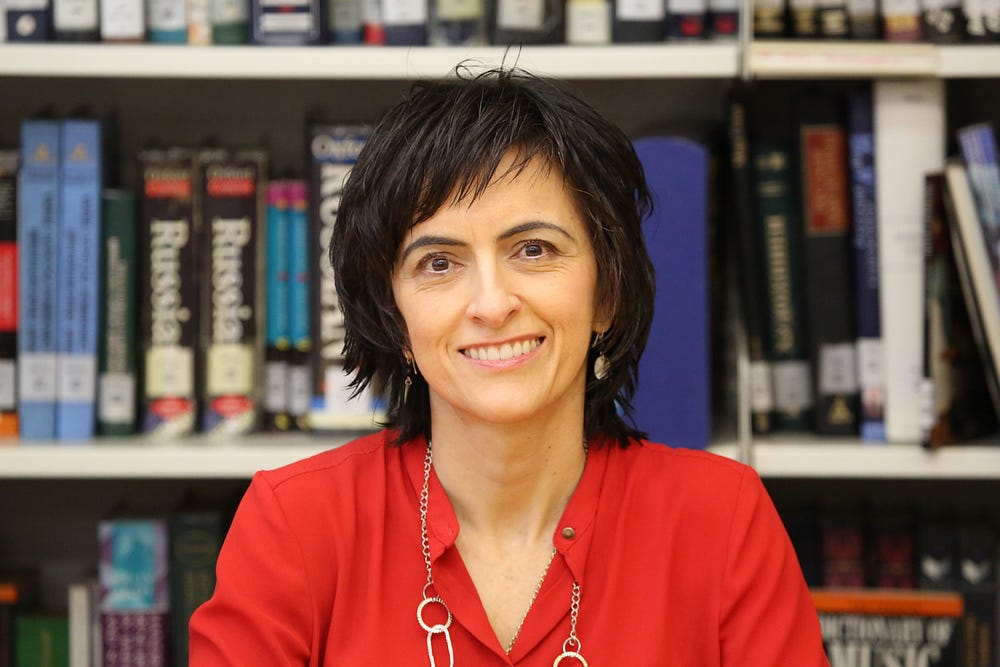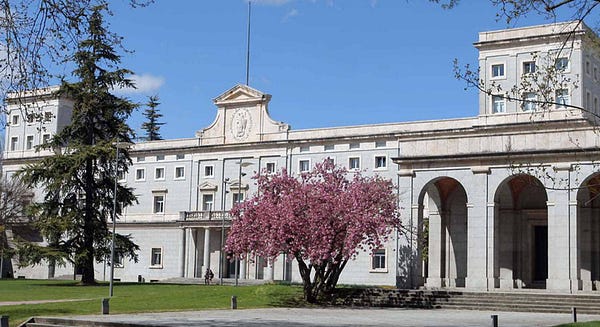Luz Ruiz Montoya is a leading professor at the Global Governance and Leadership (GGL) programme at the School of Public Policy and Management, RANEPA. It was a pleasure to have this inspirational talk with such an expert. Professor Ruiz Montoya earned her Ph.D. in Civil Law at the University of Navarra, Spain. She teaches “International Law” and “Jurisprudence and Law” at the GGL programme. An effective governance on a global level and ethical leadership are the essential requirements for any organization nowadays. Ethical leaders take into consideration the long-term consequences, drawbacks, and gains of their decision-making within the organization.
The professor shares her experience about teaching at RANEPA, perspectives on leadership, the link between leadership and law and much more…

Please, tell us more about your professional background and major areas of interest.

I graduated and obtained my PhD in Civil Law at the Universidad of Navarra (Spain), I taught Civil Law for 12 years and carried out managerial responsibilities at the Faculty of Management Assistants, such as Dean of Studies (1998–2003) and Director of the International Department (2004–2007).
Within the Academic sphere, I have been a visiting Professor at the New York State University, Hogeschool Gent (Belgium), Haaga-Helia University, Helsinki (Finland) and at the MGU (Moscow).
From 2007 I live in Moscow. I have been the Director of the Representative Office of a Spanish Company (DUINSA, SL) from 2008 to 2012 and since 2013 I work at Carnelutti Law firm, as Director of the Spanish Desk.
Currently, you are teaching “International Law” and “Jurisprudence and Law” at the Global Governance and Leadership undergraduate programme. Could you please, give your point of view about the essence of leadership for lawyers. Why it is important for the future leaders?
In my view, the essence of a leader is closely linked to his personality. It means the ability to exert influence on others not by means of power, but by means of helping them to get the best out of themselves. The leader is freely and voluntarily followed and only in this case leadership is real and effective.
As a consequence, it demands real interest towards others, gets to know them, listens to them, as well as the ability to make decisions and the fortitude to move forward in spite of difficulties.
Law subjects can be very helpful in the sense of developing the ability to reason and distinguish important and less important factors, to analyze consequences and, consequently, make the right decisions.
My students are not future lawyers, but Law knowledge, apart from the above mentioned, can help them to make the most of their legal team. Lawyers are technicians and only if those directors making decisions understand the legal issues, will they be able to value and make use of lawyers´ opinion in the right way.

What do you consider as the most important leadership skills for lawyers? Name at least three leadership skills.
As I already said, I can only talk about leadership in general.
I would mention three virtues, which are more than just skills:
· Magnanimity (“think big” or the team will become smaller and smaller)
· Empathy (be able to understand, communicate with others so they feel themselves valued and trusted)
· Humility (to accept others´ feedback, rectify and ask for pardon when necessary
And… let me add Fortitude to make things happen.
What you like best about teaching at the School of Public Policy and Management at RANEPA?
Without any doubt: the STUDENTS! I do love them, I see their potential, their high ideals and I feel I have a huge responsibility in the sense of inspiring and motivating them so that they want to study and cope with their challenge of becoming great leaders.

Please, describe your teaching philosophy. How is your experience about your teaching at the Global Governance and Leadership programme as a multicultural environment including group of students that come from different countries?
Above all, I try to develop students’ critical thinking; it is essential since all of us receive tons of information every day.
I try to make them aware of the fact that they are the “main actors”, they take an active part in the learning process by working on cases, doing research on the internet about current issues that we will discuss in class, classes are a dialogue with questions from both sides: professor and students.
I think a multicultural environment is always enriching for the students and helps their intellectual openness.
What is your personal motto and what you consider as the most important key to success?
Try to be better than yesterday, worse than tomorrow. It doesn´t mean not making mistakes at all! It means looking back each day and thinking: it was worthy!
I believe that being a good professional means being a good person. It is much more than just getting good results -money, prestige, etc. Each one needs to think what am I here for, what goals do I have in my life, only if you are able to answer to these key questions you can have a happy and successful life.
Please, give three book recommendations for students to read before graduating.
2. The brothers Karamazov (F. Dostoevsky)
3. The little Prince (A. Saint-Exupéry)